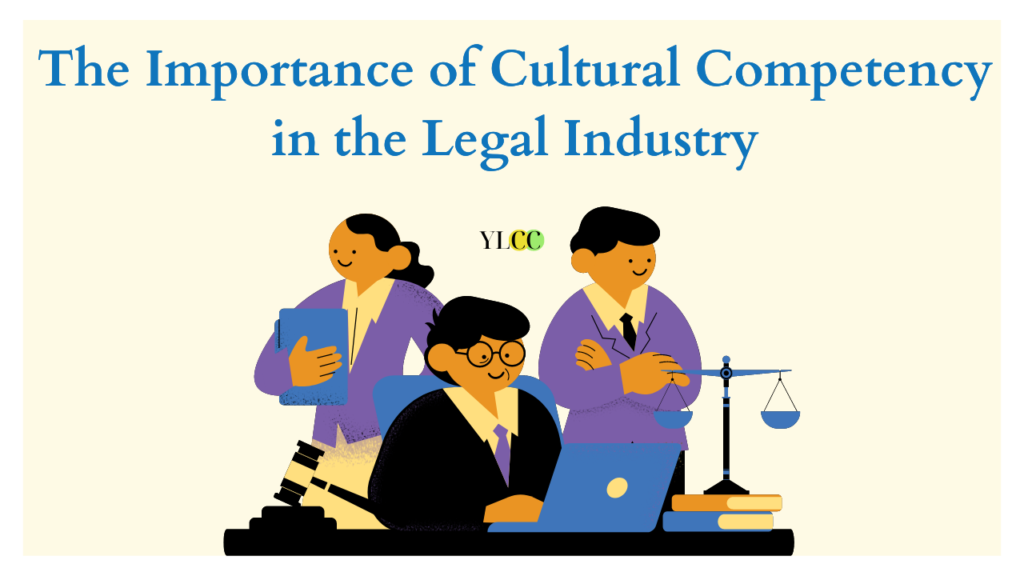
Oh boy, cultural competency! The buzzword that everyone loves to talk about but no one really knows how to implement. In this blog post, we’ll define cultural competency, explain why it’s important in the legal industry (spoiler alert: it’s not just for show), and outline some practical ways to achieve it.
The Wonders of Diversity in the Legal Industry: Understanding Cultural Competency for Lawyers
In the legal industry, you never know who’s going to walk through that door next. From the corporate bigwigs to the hard-working folks in overalls, every day is an adventure.
But let’s face it, with diversity comes a few challenges, and one of the biggest hurdles can be navigating cultural differences. It’s not always easy to understand someone’s perspective if you don’t share the same cultural background. That’s why it’s important to brush up on your cultural competency skills! Now, you might be thinking, “Cultural what now?”
You may have heard that knowing the law is everything in the legal industry. But, let’s be real – understanding your clients’ cultures is just as important. Sure, you may be able to cite case law like nobody’s business, but can you navigate a conversation with someone who has vastly different beliefs and values?
Don’t believe me? Just imagine trying to represent a client from a different cultural background without cultural competency. You might as well be speaking a different language. And not just any language, but a language that only you understand.It’s like being a cultural chameleon – able to adapt to any situation with ease.
So, whether you’re dealing with a client from a different country, a different religion, or even just a different background, cultural competency can help you navigate those differences with ease. It’s like having a secret superpower that helps you connect with people on a deeper level.
Defining Cultural Competency (Because We All Need a Refresher)
Cultural competency is the ability to understand and effectively navigate different cultures, beliefs, and practices. It’s not just about being “politically correct” or “woke,” but about truly understanding and respecting the experiences and perspectives of people from diverse backgrounds.
Why Cultural Competency Matters in the Legal Industry (Hint: It’s Not Just for Appearances)
In the legal industry, cultural competency is crucial for several reasons. First, it’s essential for providing effective representation to clients from diverse backgrounds. Second, it helps to promote a more inclusive and equitable workplace culture. And finally, it’s just the right thing to do.
Cultural Competency – It’s Like Learning a New Language
Cultural competency, the ability to understand and respect cultural differences, is crucial in the legal industry. It’s like learning a new language, except instead of words, you’re learning about different cultures, traditions, and customs. Knowing the ins and outs of your clients’ cultures can help you provide effective legal representation and avoid misunderstandings that can derail your case.
You Don’t Want to be the Legal Equivalent of Google Translate
Being culturally competent can make all the difference in legal representation. Imagine trying to use Google Translate for legal documents, that’s how it feels when you’re not culturally competent. A lack of cultural understanding can lead to miscommunication, mistrust, and ultimately harm legal representation. So, take the time to understand and respect cultural differences, it’ll pay off in the end.
Lost in Translation: How Cultural Differences Can Impact Legal Representation
The legal industry can be pretty confusing for anyone, regardless of their cultural identity. But what happens when a client’s communication style or attitudes towards authority clash with their lawyer’s? Cue the potential for disaster. To illustrate, let’s take a look at a few cultural differences that could impact legal representation:
- Communication Styles: Some cultures value direct, clear communication, while others prioritize more indirect or formal language. Lawyers who fail to recognize these differences may struggle to effectively communicate with their clients, leading to misunderstandings or missed opportunities.
- Attitudes Towards Authority: In some cultures, respect for authority figures is paramount. In others, challenging authority is seen as a necessary means of advocacy. Lawyers who don’t understand these differing attitudes may struggle to build trust and rapport with their clients.
- Decision-Making Processes: Different cultures approach decision-making in different ways. Some prioritize consensus-building and group decision-making, while others value individual autonomy. Lawyers who don’t recognize these differences may inadvertently alienate their clients or struggle to get their input on important legal matters.
By understanding and respecting these cultural differences, lawyers can build stronger relationships with their clients, ultimately leading to more effective legal representation.
How to Be Culturally Competent Like a Pro
Now that you know the importance of cultural competency in legal representation, how do you incorporate it into your practice? Here are some examples:
- Understand the cultural backgrounds of your clients.
- Respect cultural customs and traditions.
- Avoid stereotypes and biases.
- Educate yourself on different cultures.
By incorporating cultural competency into your legal practice, you’ll be able to provide effective legal representation and build strong relationships with your clients.
Picture this: a lawyer walks into a meeting with a new client, who comes from a different cultural background than the lawyer. Instead of stumbling through the conversation and inadvertently offending the client, the lawyer seamlessly navigates the discussion with cultural sensitivity and understanding. The client feels heard and respected, and the lawyer gains their trust. As a result, the client is more likely to share all relevant information, leading to better communication and a more favorable outcome for the case. That’s the power of cultural competency in the legal industry!
Conclusion
Cultural competency is crucial for success in the legal industry. Failing to understand and respect different cultural perspectives can lead to misunderstandings, mistrust, and ultimately, poor outcomes for clients. Imagine a lawyer unintentionally offending a client and losing their trust, leading to a breakdown in communication and a negative outcome for the case. No one wants that!
That’s why it’s so important for law firms and lawyers to prioritize cultural competency training. By investing in education and awareness, legal professionals can better serve their diverse client base and create a more inclusive workplace culture. Plus, cultural competence is not only the right thing to do, it’s also good for business. Clients are more likely to trust and recommend a lawyer who understands and respects their cultural background.
So, let’s all commit to being culturally competent and creating a legal industry that truly serves all members of our society. With empathy, respect, and understanding, we can ensure that every client receives effective and just representation, regardless of their cultural background.
YLCC would like to thank Pearl Narang for her contribution in this article.






